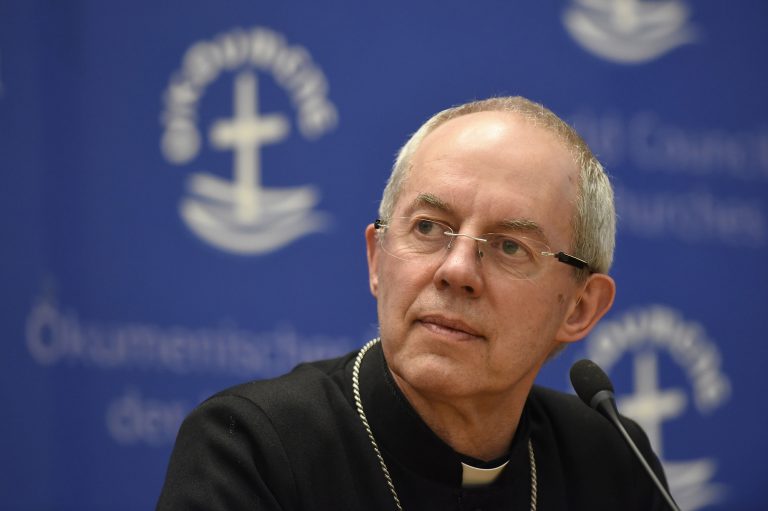
The senior archbishop of the Church of England and head of the worldwide Anglican Communion will be in Prince Albert this spring to meet Indigenous leaders and residential school survivors.
Justin Welby, the Archbishop of Canterbury, will visit Canada between April 29 and May 3. His visit includes stops in Toronto, the Six Nations Reserve near Brantford, and then Prince Albert, where he’s expected to meet political and religious Indigenous leaders as part of the reconciliation process.
“I think it’s pretty significant,” Archdeacon Andrew Hoskins said when asked about the visit. “The Archbishop coming is a sign of the desire for reconciliation, (and) a desire to express sorrow and repentance for misdeeds of the past. (The visit) expresses the church’s desire to be helpful in the ongoing healing process.”
Welby will be joined in Prince Albert by Mark MacDonald, the Anglican Church of Canada’s first National Indigenous Bishop, and by Primate Linda Nicholls. Their schedule has not been officially released, but Welby is expected to travel to a nearby reserve to meet with leaders and former residential school students.
Hoskins said Anglican Church of Canada churches in Saskatchewan have sought to right the wrongs of the residential school era through acts like an official apology delivered in 1993. He views the Archbishop’s visit to Prince Albert as a chance to build on those efforts.
“I hope (to see) just a greater sense of concern, of understanding, and that we have a sense of being in this together—both the Indigenous church and the non-Indigenous church,” Hoskins explained. “This is a process we’re in together. It’s a healing that’s needed—for the church and for religious people—and in a sense for the wider community as well.”
At its peak in the late 1920s, the Anglican Church operated 24 residential schools, mostly in the northern and central regions of Western Canada. In 1946, the church launched its own review of the residential school system to identify shortcomings in educational standards and determine how viable the schools were. By 1952, the federal government was responsible for hiring teachers and had complete control over the in-class curriculum.
By 1969, the remaining church-run schools were taken over by the government. As of 2005, there were an estimated 80,000 Anglican residential school students still alive. In 2007, the church reached a Residential Schools Settlement Agreement in Principle which provided a Common Experience Payment for former students.
“Anglican history in Canada in entwined with the Church of England, British explorers, colonists, and Crown representatives,” reads a general synod statement dated for Feb. 10 and posted on the Anglican Church of Canada website. “Their presence in treaty negotiations and subsequent partnership with the government are part of the legacy of colonialism that contributed to residential schools and to abuse and cultural deprivation.
“A significant purpose behind Archbishop Justin’s visit is to recognize and repent of where those relationships have done damage rather than good, particularly with Indigenous peoples.”
Prince Albert will also host the provincial synod for the Ecclesiastical Province of Rupert’s Land in the days leading up to Welby’s visit.
